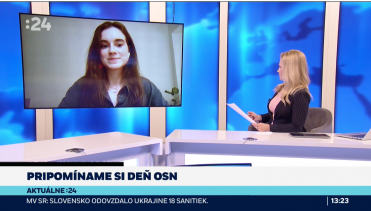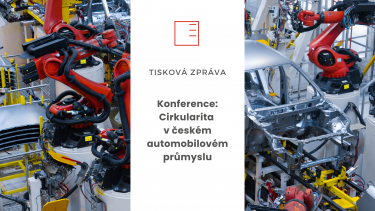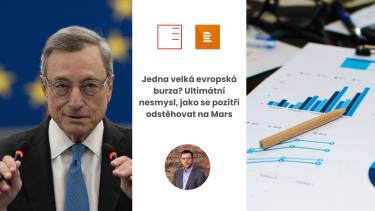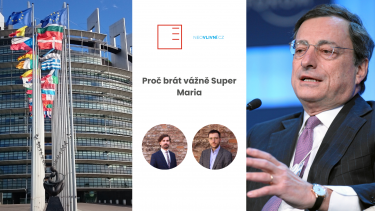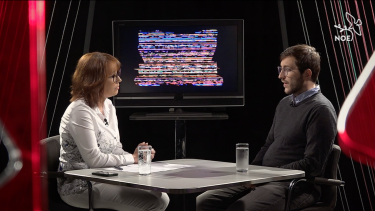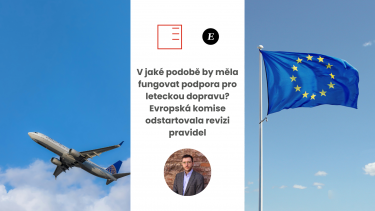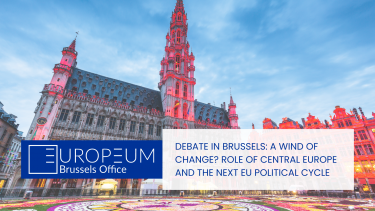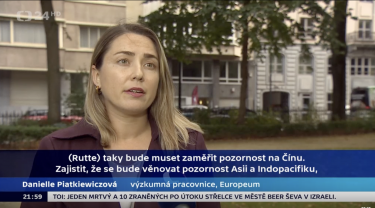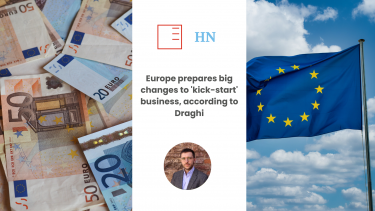STVR | October 24 marks United Nations Day
United Nations Day has been celebrated since 1945 when the UN Charter came into force. Veronika Novotná, EuropaSecura project coordinator at EUROPEUM Institute, commented for Slovak TV.
Show more
Press Release | Circular economy as a challenge for the Czech automotive industry
On Thursday, 17 October 2024, EUROPEUM Institute for European Policy in cooperation with the Institute for Circular Economy INCIEN organized a conference entitled Circularity in the Czech Automotive Industry: opportunities and obstacles, in which the Czech Battery Cluster was a partner. The conference was attended by representatives of the Czech automotive industry, state administration and research organizations. The press release from the conference and presentations of the organizations can be found in the text below.
Show more
ČRo Plus | One big European stock exchange? The ultimate nonsense, like moving to Mars the day after tomorrow
The European Union is struggling with economic problems and is increasingly looking at the back of the US and in some respects China. According to a report recently commissioned by the European Commission from the former central banker and former Italian Prime Minister Mario Draghi, the solution lies, among other things, in greater European investment. And to ensure that there is enough money for this and that European investors do not go elsewhere, the European capital market should be strengthened. Filip Křenek, project coordinator and analyst at EUROPEUM Institute, commented for Český rozhlas Plus.
Show more
Neovlivní.cz | Why take Super Mario seriously
Radical reforms or slow agony. This is the choice facing Europe if it is not to continue to fall behind its American and Chinese competitors, according to a recently published analysis by renowned economist and politician Mario Draghi. Viktor Daněk, deputy director, and Filip Křenek, project coordinator and analyst at the EUROPEUM Institute, commented for Neovlivní.cz.
Show more
TV Noe | The role of Jozef Síkela as EU Commissioner for International Partnerships
How strong a portfolio has Jozef Síkela acquired as Commissioner for International Partnerships? What exactly does he expect and what will be part of his portfolio? Project Coordinator and Analyst at EUROPEUM Institute Filip Křenek commented for TV Noe.
Show more
Ekonomický deník | How should support for air transport work? The European Commission has launched a review of the rules
The European Commission opens a debate on aviation support in the coming years. The new rules should start to apply after 2027. In particular, the guidelines are intended to minimize negative effects on competition and aim to preserve connectivity. Project coordinator and analyst at EUROPEUM Institute Filip Křenek commented for Ekonomický deník.
Show more
Debate in Brussels | A wind of change? Role of Central Europe and the next EU political cycle
As the dust settles after a hectic period of post-election negotiations, Von der Leyen’s second Commission is faced with serious economic challenges. Recent reports of Draghi and Letta have clearly indicated that the EU is lagging behind other global powers in the areas of growth and competitiveness and this is reflected in the composition of the College as well as within strategic priorities for the next political cycle. Come listen and debate about challenges EU is facing!
Show more
ČT24 | New Secretary General Rutte assures Ukraine of NATO support
The newly elected NATO Secretary General Mark Rutte went on his first working visit to Ukraine. He assured President Volodymyr Zelensky that he wants member countries to continue to support Ukraine and strengthen defense. Experts say they don't expect a change in the direction of the North Atlantic Alliance with the new chief, while warning that under the circumstances it will be the most difficult for him to keep the alliance together. For ČT24 comments Research Fellow at EUROPEUM Institute Danielle Piatkiewicz.
Show moreTAPF | Transatlantic Evening Talks
Don’t miss this unique opportunity to expand your understanding of transatlantic relations with a one-week program in November! Over the course of this week, you’ll engage with experts, participate in discussions, and gain invaluable insights into the complex dynamics shaping the relationship between Europe and North America.
Show more
Hospodářské noviny | Europe prepares big changes to 'kick-start' business, according to Draghi
In a comprehensive analysis, renowned economist and former Italian Prime Minister Mario Draghi warned EU countries that if their economies continue to grow as they have been, they are in for "slow agony". Well, stagnation. According to the former chief of the European Central Bank, the EU economies will be as large in 2050 as they are today, mainly because the number of people of working age will fall. The only way to reverse this trend is for EU countries to significantly increase their productivity. However, productivity in Europe has grown much more slowly in recent years than in the United States, for example. Filip Křenek, project coordinator and analyst at EUROPEUM Institute, commented for Hospodářské noviny.
Show more
Staroměstské náměstí 4/1
Prague 1 - Staré Město
110 00
tel.: +420 212 246 552
email: europeum@europeum.org
https://www.europeum.org
